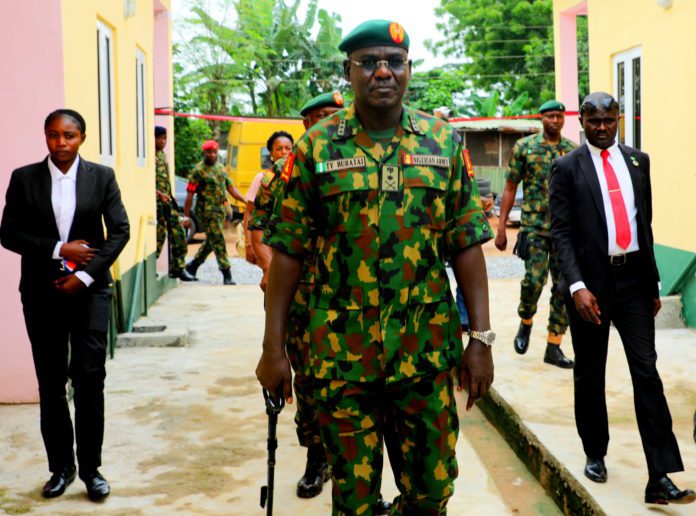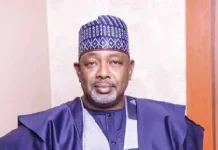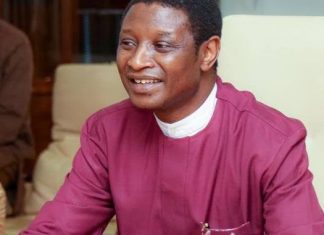By Moses Okolo
War, insurgency, sectarian violence, communal upheavals, riots, and cross-border terrorism have refused to become old-fashioned, obsolete,
and anachronistic in spite of high-tech and high-resolution developments in globalization and international diplomacy.
Peace-keeping and counter-insurgency have remained recurrent military
engagements as casualties, strife, and misery have remained heart–rending and a melancholic humanitarian cry tasking the leadership versatility of military leaders and leadership who often
have to innovate outside the routine of command and regimentation.
The logic that “no good comes from trouble” is honing the psyche and
professional carriage of contemporary military leaders whose managerial actions are demonstrating the moral that peace is the ideal no matter how much war and insurgency appear inevitable. It is patriotism put ahead of nationalism; it is the kind of patriotic fervour that does not only define desirable leaders, but lays foundation for a country to rediscover itself, set on a new course, and keep a date with both heritage and destiny. Writing in 1860, Italian philosopher and politician, Giuseppe Mazzini, scooped the future and perspectivised on patriotic leadership to the effect that “the country is the idea which rises upon (its) foundation; it is the sentiment of love, the sense of fellowship which binds together all the sons of that territory”.
Commenting much later, as recently as 2010, Ben Dupte, arguing the dialectics and propositions of ‘nationalism’, could agree no less with Mazzini as he elucidated further that “at moments of crisis, patriotism can be the mainspring of heroic sacrifice and selfless resistance to oppression; at quieter times, love of one’s native land may inspire a deep and lasting sense of community and social cohesion”. Cast in the analytical and illuminating postulations of great men and thinkers of yesteryears, and born to grapple with the testy challenges of military leadership, peace keeping, cease fire enforcement, and providing humanitarian relief before a United Nations bonded than ever before by digital science and supersonic technology, welcome Nigeria’s Chief of Army Staff, COAS, Lt General Tukur Yusufu Buratai.
Ever since he emerged as the Chief of Army Staff in 2015, TY Buratai’s trajectory has been a narrative of soldiering with mercy and compassion. It is also a story of heroic sacrifice, self-denial, and uncommon passion to bring succour, joy, and happiness to the distressed, displaced, traumatized, grieving, dispossessed, and under-privileged as a result of the sustained ferocious and wanton insurgency war that has ravaged and devastated most parts of North-East Nigeria, and dehumanized the ranks and rungs of its demographic makeup. At huge personal costs, General Buratai has been working extra time and behind the scene and beyond the war fields to restore hope and confidence.
For TY Buratai, it is about statesmanship and patriotism; raising new
standards in professional leadership, esprit de corps, and comradeship; not religion or tribe or race. ‘And it is Christmas season again. The pragmatic General is at it again, providing for, and sharing with his troops – officers and men. Beyond the Barracks, he also reaches out to depraved and indigent members of the impoverished North East area every Christmas. As he embarks on this benign gesture and act of sharing which practising Christians admit is a cherished ideal of the festivities marking the birth of Jesus Christ, TYB is about institutionalising a community service ideal.
This is certainly a culture and tradition that will motivate the military rank and file and leave worthwhile memories for the officer corps to emulate as innovations and pragmatism are required as vital components of modern military mobilization, motivation, and command to
respond to counter-insurgency, peace keeping, and ceasefire operations.
A detribalised professional and regimented officer corps, the uniqueness of this end-of-year and annual/seasonal gesture by the
Chief of Army Staff is that it is patently generous; as it is not restricted along ethno-religious and geo-cultural lines. This annual act has also provided an interface and commonplace for inter-religious unity, understanding, and co-operation. This offers an unimpeachable ground for why the stewardship of TY Buratai as Chief of Army Staff should not be assessed based on the primordial prism of longevity or some other whimsical ethno-religious and geopolitical sentiments, but on the beauty, amiability, and core values of patriotism, peace, national integration and human empowerment which it sustains. This humane disposition of TY Buratai, made even more canonical by a steady and lavish community public relations package which has reassured the North East region of the government’s resolve to restore peace and security; and the responsiveness of government policy direction in this regard. Buratai’s generosity and kind hearted posture is quintessentially one with a huge humanitarian impetus, and in spiritual and philosophical terms, unmistaken service to God and mankind which enjoys the blessing of Biblical and Quaranic teachings and prescriptions.
The Buratai philanthropic project is exemplary and a sterling exemplar for national strategic studies analysis and discussion. This could constitute a template, for instance, in military-police partnership for effective and enduring public security, and also offers a workable thematic model for ceasefire negotiations and counter insurgency intelligence gathering in different conflict locations or environments. It does appear that these soul-touching efforts of
Buratai have been impacting positively on anti-insurgency efforts in North East Nigeria. Apart from keeping the troops loyal and committed to the struggle and the ultimate imperative of quelling the insurgency and bringing the insurgents to total surrender, TY Buratai has succeeded in bringing a desirable component – that is leadership mentoring, to
bear on the troops who are certainly learning and growing on the job.
The foregoing needs to be emphasized as one of the initiatives that have ensured steady commitment and paroxysm of victory songs as the insurgents have been decimated, captured, and forced to surrender on many counts.
Again, Lt. Gen. TY Buratai, has become a metaphor, an allegory, and even a metaphorical allegory for worthy and worthwhile public officers discourse in Nigeria. The side bar here is that Nigeria can search internally, for there is a strong human resource base within, to resolve lingering national leadership challenges. This reality does not yield to ethno-religious proclivities. It is just time for Nigeria to shine her eyes and shine to the world.
Okolo, an evangelist and author wrote this piece from Yola, Nigeria.
Join Television Nigerian Whatsapp Now
Join Television Nigerian Facebook Now
Join Television Nigerian Twitter Now
Join Television Nigerian YouTUbe Now





